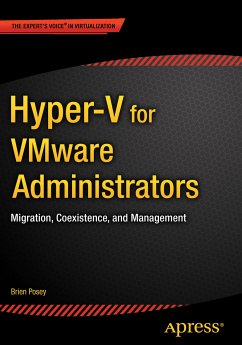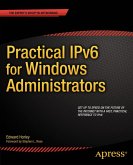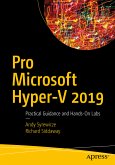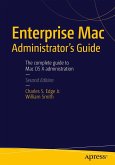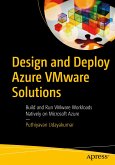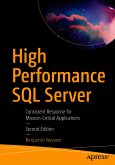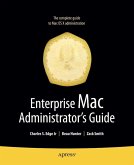The book begins with an overview of Hyper-V basics, including common management tasks such as creating a virtual machine and building a virtual network. You'll learn how to deploy a failover cluster to protect against the risk of Hyper-V becoming a single point of failure, and how to make virtual machines fault tolerant. System Center Virtual Machine Manager (SCVMM) is the preferred tool for managing large Hyper-V deployments, so you'll get to know this next and how it differs from VMware's vCenter solution, as well as how to manage a mixed environment including both vSphere and Hyper-V deployments.
Like any server migration, a virtual server migration requires careful planning to ensure success. You'll find information here on the specifics of migrating from vSphere to Hyper-V, planning for down time, IP address differences, performance considerations, and more. For migrations to Hyper-V, SCVMM is once again the preferred tool, but you'll also be introduced to some of the excellent free tools available.
One easily overlooked aspect of the migration process is the way in which it impacts your backup and recovery strategy. Knowing the best practices here can help you protect your Hyper-V environment. The book also covers how to monitor and maintain your Hyper-V environment once it's up and running, using features like Cluster-Aware Updating, automated live migrations, and availability sets. The concluding chapter shows you how to take advantage of the efficiencies provided by virtual machine libraries and templates.
Approach Hyper-V with confidence, and the knowledge that you've planned for success, with Hyper-V for VMware Administrators.
Dieser Download kann aus rechtlichen Gründen nur mit Rechnungsadresse in A, B, BG, CY, CZ, D, DK, EW, E, FIN, F, GR, HR, H, IRL, I, LT, L, LR, M, NL, PL, P, R, S, SLO, SK ausgeliefert werden.

